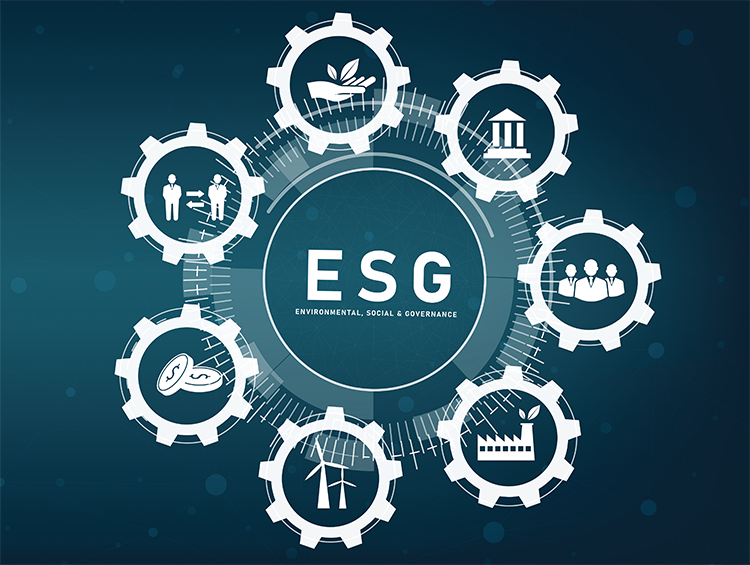Wolf Theiss: ESG shall split the market into two speed companies
Another EU directive related to ESG will significantly increase the reach of companies, which will have to meet strict criteria for activities for sustainable development. "You have to reckon with the fact that next year companies participating in even a distant supply chain will have to demonstrate the implementation of sustainable development requirements. This will significantly professionalize the market, but will also divide it into the first and second league of companies," indicates Zuzanna Nowak-Wróbel, Associate in the Warsaw IP & TMT team of the Wolf Theiss law firm.
Non-financial ESG reporting - i.e. related to activities for the benefit of the environment, social issues and corporate governance - currently concerns mainly listed companies and companies from the financial sector. EU regulations from 2023 impose the obligation of non-financial reporting related to ESG on all companies employing over 250 people.
Subsequent EU regulations significantly expand the reach of companies covered by ESG, which results from the currently working text of the CSRD (Corporate Sustainability Reporting Directive), which was published on June 30, 2022 as agreed jointly by the Council and the European Parliament. According to the directive, from 2024, almost 4,000 companies in Poland will have to report what they are doing for sustainable development.
"Another group of companies is facing a revolution, and to a much greater extent than we think about it now. It is not only about large enterprises, but also the SME sector, especially where they participate in the supply chain. For legal changes, but also those expected by investors, or those that will be forced by large companies and tender procedures - small enterprises must start preparing today if they do not want to lose their importance on the market," adds Kinga Kluszczyńska, a member of the Warsaw IP & TMT team at Wolf law firm. Theiss.
The implementation of the EU directive currently introduces a number of changes to the national regulations of individual sectors, forcing banks and insurance companies not only to report, but also to apply ESG criteria in financial practice. For example, from August 2022, there is an obligation to check customer preferences regarding investments in "green products". In other words, you cannot offer the customer an asset that is not in line with his preferences.
The entry into force of the CSRD directive will extend this scope even more and from 2024 all large companies, capital groups and listed companies will be covered by the obligation of non-financial reporting, specified in much more detail.
"In this case, the stringent reporting criteria, which will relate to three areas, become the key. First of all, the company itself, i.e. what emissions it generates, what it produces, and what standards the building in which the company is located meets. Secondly, what the company buys, e.g. fuel and energy. Third - and this is the biggest challenge - it is about the entire supply chain, emissions generated by suppliers or producers along the entire production cycle chain. This is the revolutionary nature of these changes, which will significantly affect the market, dividing it into two groups of companies: first and second league or speed," explains Zuzanna Nowak-Wróbel.
Legal regulations have also changed the habits of investors. Companies obliged by law to report an increasing amount of data, including non-financial data, are much easier to verify in terms of investment.
"Thanks to ESG reporting, investors can verify the company more effectively, checking what activities it conducts not only for the environment, which was the most famous this year in the context of ESG, but also what the company does to eliminate wage inequalities, in the employment of women and men or the presence of women in managerial positions. Observing this trend, we can assume that in the next few years, companies that do not have ESG strategies and reports will not be taken into account by these investors in terms of cooperation. That is why sustainable development has become an element of the business strategy of every company that wants to count on the market," comments Kinga Kluszczyńska.
Therefore - according to lawyers and experts - taking into account both the regulatory pressure and the expectations of business partners, investors and individual clients, almost all entrepreneurs should prepare for ESG.
"Briefly speaking, without showing measurable processes and actions for sustainable development, many companies can go out of the market. It is not only about having an environmental strategy, but about well-organized and described procedures regarding employment policy, personal data protection, i.e. GDPR, compliance or counteracting inequalities. It seems that EU regulations will also go in this direction to increase the transparency of ESG reports. There are voices that more precise guidelines are needed, for example in the case of data on social issues (e.g. related to inclusiveness and eliminating inequalities), the problem is not the quantity of data, but their quality and context of use. However, it is certainly one of those data which - unlike the hardly quantifiable carbon footprint - cannot be manipulated. The investment market shows that policies in the areas of social issues and corporate governance are becoming more and more significant," explains Zuzanna Nowak-Wróbel.
Currently, non-financial reporting is mandatory for the so-called public interest entities, i.e. banks, insurers, investment funds, etc. Before the announcement of the draft of the new CSRD directive, the schedule assumed that from 2023 the obligation would cover large companies and companies listed on the stock exchange, which generate revenues in excess of PLN 170 million net per year and have an annual balance sheet total (assets and liabilities ) in the amount of PLN 85 million. Three years later, i.e. from 2026, ESG reporting was to cover all companies. The draft of the new directive significantly expands the scope of entities subject to the obligation to report information on sustainable development to all large entities, regardless of whether they are listed or not. In addition, in the light of the new proposals, three years later than large entities, such mandatory reporting would be started by small and medium-sized entities.











